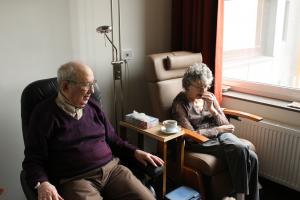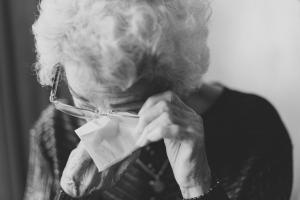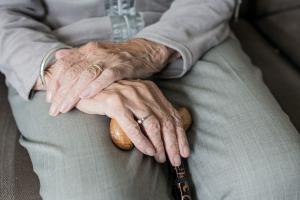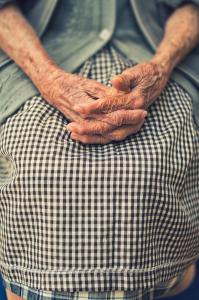CCHR: Thousands of Seniors Subjected to the Trauma of Involuntary Examinations

CCHR Florida is raising awareness of the abuse suffered by the elderly under the mental health law especially the unnecessary and potentially harmful involuntary psychiatric examination of seniors, a process called Baker Acting.
The failure to protect the elderly has prompted a mental health watchdog organization to ask lawmakers to take effective action during the upcoming session.
The abusive Baker Acting of senior citizens has been a problem for decades. During the 1990’s, media reports revealed that approximately two-thirds of the people taken into custody for a Baker Act in Pinellas County were seniors and public testimony before the Florida Legislature exposed that many elders fared poorly and some even died during or shortly after being taken into custody for an involuntary psychiatric examination. [2]
As a direct result of the investigative media, members of the Florida Legislature took action to reform the Baker Act after it was revealed that some nursing homes and assisted living facilities were sending the elderly to “a couple of psychiatric hospitals in Pinellas County and getting kickbacks in return”. Unable to provide true consent to the admissions, some of these seniors died as a direct result of the transfers. [3]
Unfortunately, despite the best intentions of the lawmakers who attempted to protect the elderly from abuse, not much has changed. The failure to adequately protect the elderly has prompted the Florida chapter of CCHR, a mental health watchdog organization, to ask lawmakers to take action during the upcoming legislative session.
“Abuse of the elderly is not just physical but also mental and this abuse has been linked to profit in the past,” said Diane Stein the president for CCHR FL. The Florida Supreme Court published a summary on the use of the Baker Act in 1990, which revealed that, “the involuntary placement process is also vulnerable to abuse, and that abuse is often linked to financial gain or convenience of nursing homes, assisted living facilities, mental health facilities, or mental health professionals.” [4]
This Executive Summary went on to report that, “problems exist as well in regard to voluntary admissions. In 1996, the Florida Legislature amended the Baker Act to strengthen patient rights. Despite these enhanced protections, the Subcommittee learned that because in-patient treatment is extremely profitable mental health facilities and professionals sometimes abuse the voluntary admission process. Moreover, some patients deemed to be ‘voluntary’ may in reality lack the capacity to consent.” [5]
“The abusive use of the Baker Act involving senior citizens is a mental health human rights violation,” stated Diane Stein. “It is our hope that our lawmakers will take effect action to protect the elderly by allowing family and friends to help as is their right by law.”
To better educate citizens on their rights, CCHR regularly holds free workshops on the Baker Act delivered by attorney Carmen Miller. Mrs. Miller held the position of Assistant Public Defender in the Thirteenth Circuit for many years in Tampa, and is now in the private sector specializing in cases of those who are involuntarily committed under the Baker Act. For more information on upcoming workshops or the protection of elder rights under the mental health law please call 727-442-8820.
About CCHR: Initially established by the Church of Scientology and renowned psychiatrist Dr. Thomas Szasz in 1969, CCHR’s mission is to eradicate abuses committed under the guise of mental health and enact patient and consumer protections. L. Ron Hubbard, founder of Scientology, first brought psychiatric imprisonment to wide public notice: “Thousands and thousands are seized without process of law, every week, over the ‘free world’ tortured, castrated, killed. All in the name of ‘mental health,’” he wrote in March 1969.
Sources:
[1] Baker Act Reporting Center https://www.usf.edu/cbcs/baker-act/documents/usf_fy2019_2020_baker_act_annual_report.pdf
[2] Florida Supreme Court Baker Act Summary https://www.floridasupremecourt.org/content/download/242846/file/BakerSummary.pdf
[3] Long-Term Care Facilities – Florida Department of Children and Families https://www.myflfamilies.com/service-programs/samh/crisis-services/laws/LongTermCareFacilities.pdf
[4] Florida Supreme Court Baker Act Summary https://www.floridasupremecourt.org/content/download/242846/file/BakerSummary.pdf
[5] Ibid.
Diane Stein
Citizens Commission on Human Rights of Florida
+1 727-422-8820
email us here
Visit us on social media:
Facebook
Twitter
LinkedIn
Other
Legal Disclaimer:
EIN Presswire provides this news content "as is" without warranty of any kind. We do not accept any responsibility or liability for the accuracy, content, images, videos, licenses, completeness, legality, or reliability of the information contained in this article. If you have any complaints or copyright issues related to this article, kindly contact the author above.




